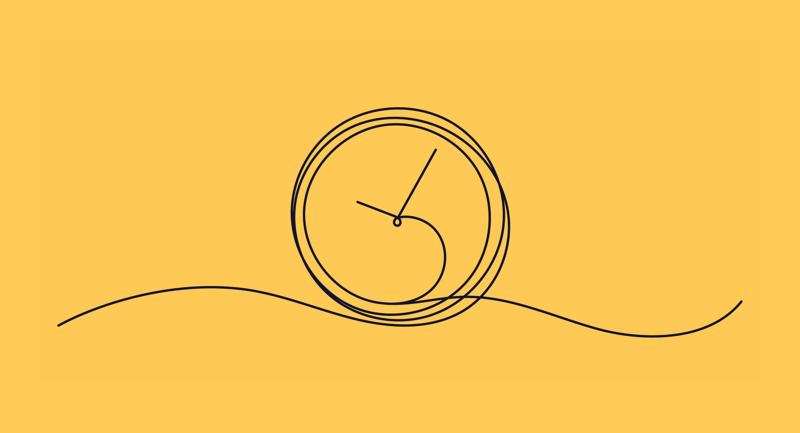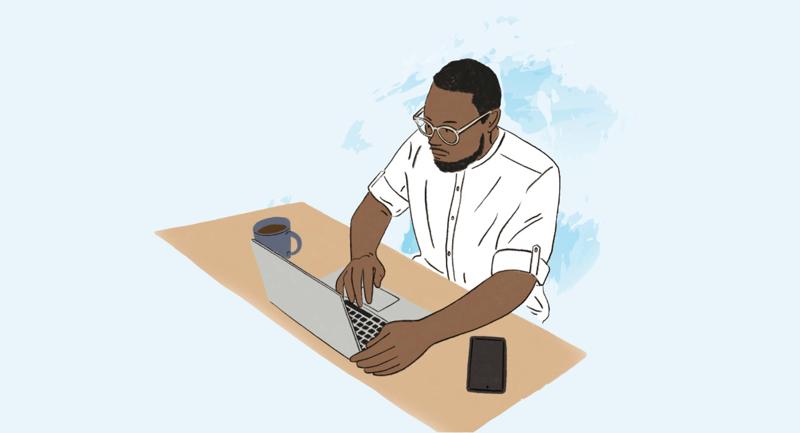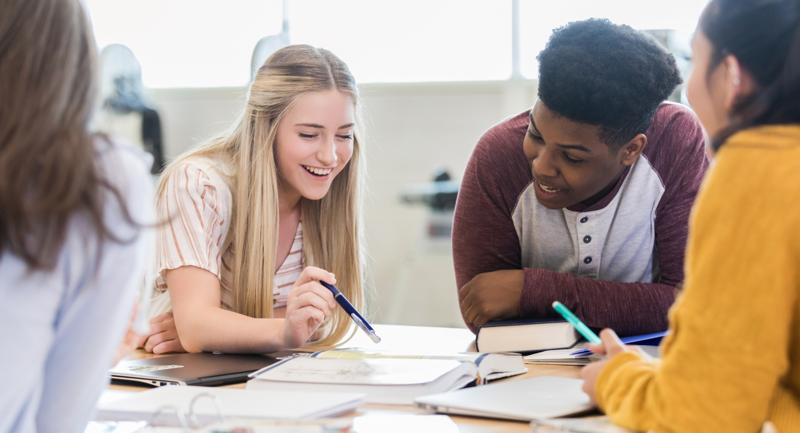"What is the purpose of education? This question agitates scholars, teachers, statesmen, every group, in fact, of thoughtful men and women," Eleanor Roosevelt wrote in the 1930 article, "Good Citizenship: The Purpose of Education," in Pictorial Review.
If you were to ask even a relatively small group of teachers, administrators, students, parents, community members, business leaders, and policymakers to address the question of purpose, how difficult do you think it would be to reach a consensus?
You might have better luck asking, "What is the meaning of life?"
In the United States, historically, the purpose of education has evolved according to the needs of society. Education's primary purpose has ranged from instructing youth in religious doctrine, to preparing them to live in a democracy, to assimilating immigrants into mainstream society, to preparing workers for the industrialized 20th century workplace.
And now, as educators prepare young people for their futures in a world that is rapidly changing, what is the goal? To create adults who can compete in a global economy? To create lifelong learners? To create emotionally healthy adults who can engage in meaningful relationships?
Yes.
"There are many different points of view on this topic," says Jonathan Cohen, cofounder and president of the National School Climate Center. "I think that my view, and most people's view, is that the purpose of education is to support children in developing the skills, the knowledge, and the dispositions that will allow them to be responsible, contributing members of their community—their democratically-informed community. Meaning, to be a good friend, to be a good mate, to be able to work, and to contribute to the well-being of the community."
Not only should children learn civic knowledge—how the electoral college works, the history of political parties, and so on—but they also need to master civic skills, which include respecting others, working collaboratively, acting in a way that is fair and just, and being an active participant in the life of the community, Cohen says.
A Disjoint Between Ideals and Actions
Are we on track to fulfill this vision? "We are not on track," says Cohen, who believes that the No Child Left Behind Act's narrow focus neglects social and emotional learning, although they are interrelated with intellectual learning. Cohen's National School Climate Center is an organization that helps schools integrate crucial social and emotional learning with academic instruction.
In his Harvard Educational Review article "Social, Emotional, Ethical, and Academic Education: Creating a Climate for Learning, Participation in Democracy, and Well-Being," Cohen looks at the disparity between where we are and where we say we want to go.
"There is a paradox in our preK–12 schools and within teacher education. Parents and teachers want schooling to support children's ability to become lifelong learners who are able to love, work, and act as responsible members of the community. Yet, we have not substantially integrated these values into our schools or into the training we give teachers," Cohen says.
Cohen hopes to see greater support for state departments of education to establish school climate measurement systems. He says states and districts also need guidelines, tools, and resources that would help them engage educators, students, parents or guardians, and community members in creating safer, more supportive, engaging, and challenging schools.
James Harvey, a senior fellow at the Center on Reinventing Public Education, holds a similar opinion about education's purpose. "K–12 education should prepare students for life—for college, for work, for living within a family and within a community, and for participating effectively in the democratic process," he says.
Although future employment is probably necessary for most young people, K–12 education is more than just job training. "Schools have always been about developing students for life and work—and life is much more than earning a living; it is also living a life," Harvey says.
To Each Their Own Definition
Cohen and Harvey are but two voices in a much larger ongoing global debate.
To engage the global community in a debate around the question, "What's the purpose of education?" Doug Belshaw and Andy Stewart founded Purpos/ed, a nonpartisan, location-independent organization. Launched in 2011, Purpos/ed fosters dialogue through activities such as the 500-word campaign, which encouraged people to take a stab at defining the purpose of education and then leading conversations on their own individual blogs.
Earlier this year, Adam Burk facilitated a rousing discussion on TED.com (which is now closed to new comments) asking, "In your opinion, what should be the purpose of education?" When Burke closed the discussion, there were as many different opinions as there were respondents.
"There are 365 comments and 365 distinct articulations of what the purpose of education should be," Burk said. "The process to develop a consensus on this is beyond the scope and purpose of this conversation. However, I do hope that it is understood that this question and its answer are the shapers of education systems and, in turn, cultures."
Despite any dilemma that varying opinions and perspectives pose, healthy debate tends to inspire innovative ideas. However, as we face the challenge of educating young people for life in the 21st century, we also know that some things will remain constant.
Dr. Gene R. Carter, chief executive officer and director of ASCD, explains in the Good article "What's the Purpose of School in the 21st Century?" that good teaching never goes out of style.
"We know that there is one education reform movement that works, and unsurprisingly, it's the same formula that has worked since we had those old textbooks, chalkboards, and red apples in the classroom. Research, policy, practice, and common sense confirm that a whole child approach to education will develop and prepare students for the challenges and opportunities of today and tomorrow," Carter says.
Harvey agrees that there's no need to scrap what has served us well in the past: "The most significant skill [young people] can develop in the 21st century is the same skill that served them well in prior centuries: a mind equipped to think, the most important work skill of them all."
There still may be hope for our future.






